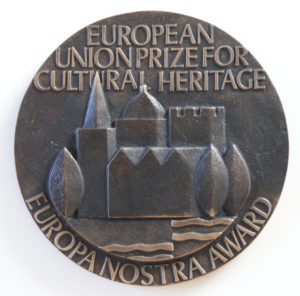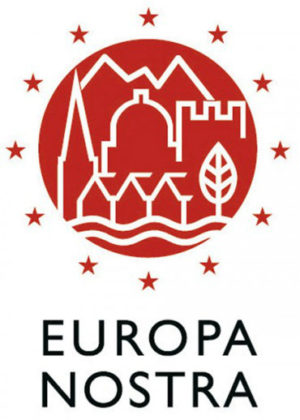Ebrulitur respects and acts within the World Tourism Organisation’s Global Code of Ethics for Tourism (“the Tourism Code of Ethics”) and the Principles of the International Cultural Tourism Charter established by the International Council on Monuments and Sites (“the ICOMOS International Cultural Tourism Charter”) under-score Europa Nostra’s commitment and approach to cultural tourism.
THE MALTA DECLARATION ON CULTURAL TOURISM
It’s Encouragement and Control
The Europa Nostra Congress, held in Malta from 16 – 20 May 2006, having considered the issue of “Cultural Tourism: Its Encouragement and Control”, subsequently endorsed the following Malta Declaration pledging Europa Nostra to encourage the practical realisation of its principles on a European-wide basis through the European Union Institutions and the Council of Europe mechanisms.
 |
 |
 |
DEFINING:
Cultural Tourism as that form of domestic and international tourism whose object is, among other aims, the discovery and enjoyment of historic monuments and sites focusing on the built (immovable and movable) cultural heritage, including the cultural landscapes, of heritage travel destination areas, to experience places and activities that authentically represent the cultural history of the host communities.
RECOGNISING that:
• Cultural tourism is one of the key drivers of European economic growth and development and plays a vital role in fostering greater understanding of the rich diversity of regional cultures of Europe and a deeper appreciation of the common European heritage;
• European cultural heritage is a distinct feature of the European identity which should be safeguarded through maintaining high standards training and professional practice in the conservation and management of the cultural heritage for the benefits and well-being of people in the host communities, who should be made more aware of the need to sustain their cultural heritage, as well as those engaged in cultural tourism;
• Cultural tourism is among the foremost means of cultural exchanges between the people of European countries and among the most valuable instruments of inter-cultural dialogue;
• Several recent documents by the Council of Europe* and EU Institutions** have focused on the need for sustainable tourism development, but the principles embodied in the World Tourism Organisation’s Global Code of Ethics for Tourism (“the Tourism Code of Ethics”) and the Principles of the International Cultural Tourism Charter established by the International Council on Monuments and Sites (“the ICOMOS International Cultural Tourism Charter”) under-score Europa Nostra’s commitment and approach to cultural tourism.
EUROPA NOSTRA
hereby calls on the EU Institutions, the Council of Europe, national, regional and local governments, as well as tourism and heritage organizations engaged in cultural tourism to adhere to the principles in the Tourism Code of Ethics of the World Tourism Organisation and the ICOMOS International Cultural Tourism Charter by taking steps to ensure the encouragement of sustainable and balanced development of cultural tourism in Europe and the implementation of good practice.
SPECIFICALLY,
delegates attending the Europa Nostra General Assembly in Malta hereby declare that the EU Institutions, the Council of Europe, national and regional governments and tourism and heritage organisations engaged in cultural tourism should:
• Adhere to the principles for the balanced development of tourism set out by the ICOMOS International Cultural Tourism Charter;
• Champion sustainable growth in the cultural tourism market, while also taking positive steps to prevent damage and degredation of the cultural heritage by careful planning to maintain the volume of tourists to heritage travel destination areas to within optimum sustainable limits;
• Respect and recognize national or regional economic needs and the revenue and employment prospects generated through cultural tourism, provided one does not sacrifice the essential character and cultural tourism potential of the host communities;
• Encourage cultural tourism in a balanced and sustainable way as a means of investing in and regenerating cultural heritage areas and experiencing the places and activities that authentically represent the cultural heritage, character and history of an area, whilst ensuring the widest access to Europe’s cultural heritage;
• Safeguard the conservation of cultural heritage sites by anticipating construction development pressures in the travel destination areas and applying techniques to prevent undesirable over-development and damage as a result of the demands of cultural tourism;
• Protect individual heritage sites in travel destination areas of outstanding heritage value from the pressures of cultural tourism by introducing and adhering to clear guide-lines for the management of such sites;
• Work together to enhance and invest in the cultural heritage features of travel destination areas by developing and improving them in distinctive ways to sustain the rich diversity of European culture;
• Encourage commercial and civic groups to create partnerships to promote cultural heritage at the local community level by building on the travel destination area’s history and culture and providing a distinctive visitor experience which is both educational and entertaining;
• Encourage by all means possible the heritage conservation community and the tourism industry to cooperate more closely together to safeguard European cultural heritage, including the cultural landscape, of heritage
travel destination areas;
• Promote the idea of a European Label for Sustainable Cultural Tourism, within the framework of the work for a label for European tourism as a global destination, through the principles set out in this Declaration.
EUROPA NOSTRA,
therefore, hereby pledges itself, through The Malta Declaration, to encourage the principles of sustainable cultural tourism, while at the same time urging the introduction of necessary controls to protect individual
cultural heritage sites.
*Recommendation Rec (2003) 1 of the Committee of Ministers to Member States on the promotion of tourism to foster the cultural heritage as a factor for sustainable development (Adopted by the Committee of Ministers on 15 January 2003, at the 824th meeting of the Ministers’ Deputies).
** For example, ‘Tourism and Culture Two Forces for Growth’ by the European Economic
and Social Committee and the EU Tourism Policy by Commissioner Verheugen
REF: http://www.europanostra.org

